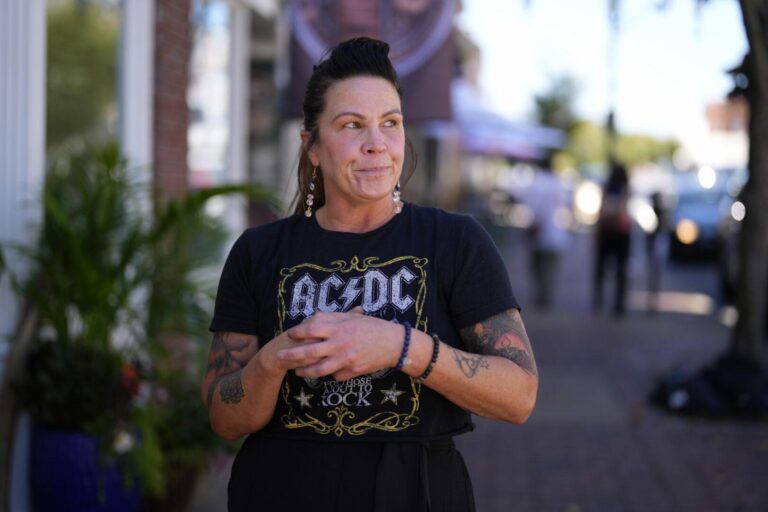Suburban Philadelphia Voters Reevaluate Kamala Harris After Recent Debate
Shifting Opinions Among Suburban Philadelphia Electorate Post-Debate
Following the latest presidential debate, residents in suburban Philadelphia are revisiting their views on Vice President Kamala Harris. Once met with a spectrum of opinions, Harris’s recent debate showing has ignited renewed interest and dialogue among voters. Many appreciated her confident and straightforward approach, particularly her ability to clearly communicate complex issues such as healthcare reform and climate initiatives. This has sparked conversations about whether her style and policies might gain broader traction as the election approaches.
Several elements have contributed to this evolving perception:
- Clear policy communication: Voters remarked on Harris’s improved clarity and coherence in outlining her policy goals compared to previous debates.
- Steady composure: Her calm and collected responses during challenging exchanges resonated with undecided voters.
- Alignment with suburban priorities: Addressing topics like education funding and local economic growth in ways that reflect community concerns strengthened her appeal.
| Group | Opinion Before Debate | Opinion After Debate |
|---|---|---|
| Young Professionals | Indifferent | More Supportive |
| Families in Suburbs | Mixed Feelings | Increasingly Positive |
| Senior Residents | Hesitant | More Favorable |
Primary Concerns Influencing Voter Sentiment in Suburban Philadelphia
Voters in suburban Philadelphia are prioritizing a variety of pressing issues that reflect the current political and economic environment. Economic uncertainty and education policy remain at the forefront of voter concerns. Many middle-class families express anxiety over job security and inflation, which continue to challenge household budgets. Education debates, focusing on funding adequacy, curriculum transparency, and school safety, have intensified, highlighting the importance of local governance in voter decision-making.
Additional critical topics shaping voter attitudes include:
- Healthcare availability: Although the pandemic’s immediate effects have lessened, access to affordable healthcare remains a vital issue for many suburban voters.
- Community safety: Discussions around law enforcement practices and investment in community resources have gained momentum.
- Environmental stewardship: There is growing attention to sustainable development and protecting local ecosystems within suburban neighborhoods.
| Issue | Priority Level | Effect on Candidate Support |
|---|---|---|
| Economic Security | Very High | Enhances appeal of candidates with practical economic plans |
| Education Policy | High | Influences parents and educators’ candidate preferences |
| Healthcare Access | Moderate | Important for elderly and vulnerable groups |
Local Polling Insights Reveal Harris’s Growing Support
Recent polling data from suburban Philadelphia indicates a subtle yet meaningful increase in support for Kamala Harris following her debate performance. Previously trailing behind several contenders, Harris has seen a narrowing gap, particularly among independent voters and moderate conservatives‚ÄĒkey demographics in this swing region. Analysts attribute this shift to her composed demeanor and clear economic revitalization proposals presented during the debate.
Highlights from the latest polling include:
- Rise in favorability: Harris’s approval ratings climbed by approximately 7% within a week after the debate.
- Increased voter engagement: There was a 12% uptick in suburban voters indicating they intend to follow the campaign more attentively.
- Top issues: Economic growth and education emerged as the most influential factors, aligning closely with Harris’s debate messaging.
| Demographic | Support Before Debate | Support After Debate |
|---|---|---|
| Independent Voters | 19% | 28% |
| Moderate Conservatives | 23% | 31% |
| Young Adults (18-29) | 15% | 20% |
Effective Campaign Approaches to Connect with Suburban Philadelphia Voters
Customized Messaging Focused on Local Priorities: Campaigns should develop targeted communications that address the specific concerns of suburban Philadelphia residents, such as property tax rates, quality of education, and improvements to transportation systems. Utilizing detailed polling data and community input can help shape authentic and persuasive narratives. Incorporating endorsements from local leaders and testimonials from residents will further build credibility and trust.
Diverse Outreach Strategies for Maximum Impact: Combining digital outreach with traditional engagement methods will broaden voter interaction. Social media campaigns highlighting debate moments and responses to suburban issues can boost online engagement. Meanwhile, organizing in-person events like town halls and neighborhood gatherings will foster direct dialogue. Below is a recommended outreach plan tailored to this electorate:
| Method | Objective | Frequency |
|---|---|---|
| Targeted Social Media Advertising | Emphasize suburban concerns and debate highlights | Weekly |
| Community Meetups | Engage voters personally and gather feedback | Monthly |
| Email Campaigns | Provide detailed policy updates and event info | Every two weeks |
| Local Radio Broadcasts | Reach older voters less active online | Twice a month |
Looking Ahead: The Significance of Suburban Philadelphia in the Upcoming Election
As the election nears, suburban Philadelphia voters are increasingly scrutinizing Kamala Harris’s candidacy, influenced by her recent debate performance. This group represents a crucial voting bloc whose evolving opinions could decisively impact the election outcome. With a clearer grasp of her policy positions and leadership style, these voters are poised to play a pivotal role. Ongoing analysis will continue to track how this dynamic shapes the campaign landscape in the final stretch before Election Day.








